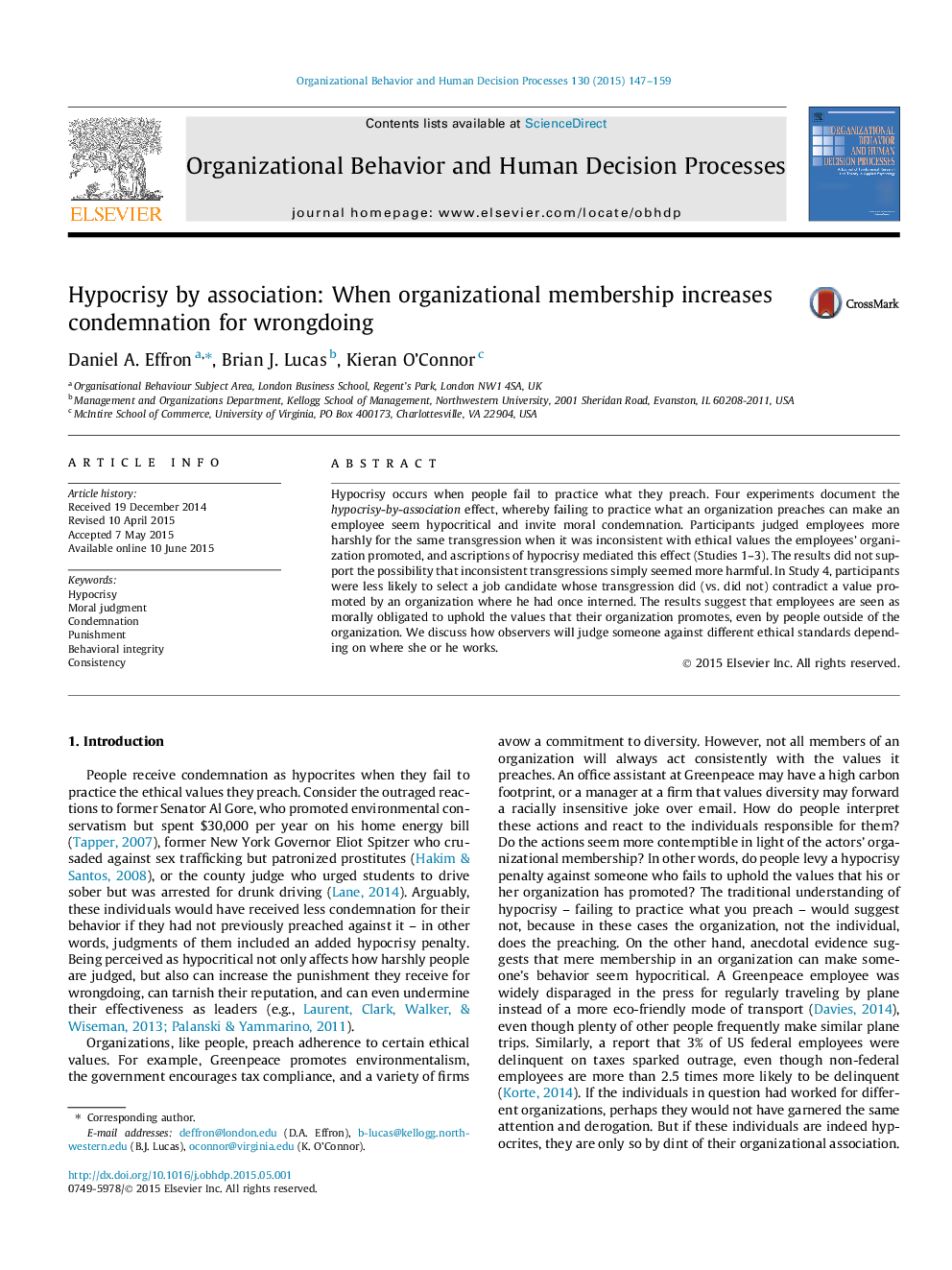| کد مقاله | کد نشریه | سال انتشار | مقاله انگلیسی | نسخه تمام متن |
|---|---|---|---|---|
| 888503 | 1471851 | 2015 | 13 صفحه PDF | دانلود رایگان |

• People receive harsh condemnation for hypocrisy: a failure to practice what they preached.
• We show people also face condemnation for hypocrisy-by-association: a failure to practice what their organization preached.
• Impartial observers judged an employee more harshly for the same misdeed when it transgressed his organization’s values.
• Job candidates received less support when their misdeeds did (vs. did not) violate a value their former employer promoted.
• Our results expand previous theories of hypocrisy and shed new light on how people think about employment relationships.
Hypocrisy occurs when people fail to practice what they preach. Four experiments document the hypocrisy-by-association effect, whereby failing to practice what an organization preaches can make an employee seem hypocritical and invite moral condemnation. Participants judged employees more harshly for the same transgression when it was inconsistent with ethical values the employees’ organization promoted, and ascriptions of hypocrisy mediated this effect (Studies 1–3). The results did not support the possibility that inconsistent transgressions simply seemed more harmful. In Study 4, participants were less likely to select a job candidate whose transgression did (vs. did not) contradict a value promoted by an organization where he had once interned. The results suggest that employees are seen as morally obligated to uphold the values that their organization promotes, even by people outside of the organization. We discuss how observers will judge someone against different ethical standards depending on where she or he works.
Journal: Organizational Behavior and Human Decision Processes - Volume 130, September 2015, Pages 147–159